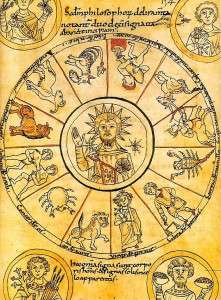 A working example {metaphorically speaking}: "In an esoteric sense, therefore, the zodiac man in mediaeval art is really a debased symbol of Christ, carrying much the same force as the old image of Christ standing 'incarnate' in the middle of the four elements, himself, the quintessence, or fifth element, at the center of the four traditional elements of Earth, air, water and fire." ['The Secret Zodiac']. Think about it in relation to that universal ''bit''.
A working example {metaphorically speaking}: "In an esoteric sense, therefore, the zodiac man in mediaeval art is really a debased symbol of Christ, carrying much the same force as the old image of Christ standing 'incarnate' in the middle of the four elements, himself, the quintessence, or fifth element, at the center of the four traditional elements of Earth, air, water and fire." ['The Secret Zodiac']. Think about it in relation to that universal ''bit''.
The main point is - regardless of what ones first impressions are - an understanding is got - into a mind set - since the dawn of human {thought} kind.
Understanding the above defines the following..."Gnosis is therefore the fruit of the silent participation of understanding..." [Extract from the book by Tomberg].
N.B. Gnosis = ''known'', i.e.,a known quantity. [Dictionary]. The result of something ''UNknown?''
Question. The word 'see' shares the same qualities? Yes or no? Enlarged throughout.
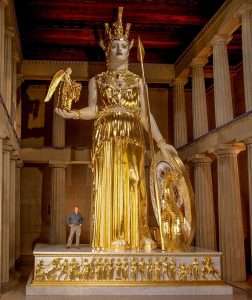
Chryselephantine statues were built around a wooden frame with thin carved slabs of ivory attached, representing the flesh, and sheets of gold leaf representing the garments, armour, hair, and other details. In some cases, glass paste, glass, and precious and semi-precious stones were used for detail such as eyes, jewellery, and weaponry.
"The word metaphor, used of words, is itself a metaphor. It means literally, a 'carrying over'...In metaphor, words are carried over boundaries, or 'transferred' to reappear in new contexts. The 'carrying' is done with varying decrees of conscious awareness." ['Book of Babel'].
Cedar poles?
N.B. One could say the same for the word ''symbol''? Enlarged elsewhere.
Silence is golden. Anything?
Feast of the Valley?
'Twelve' in relation to 'thirteen'?
''The word 'mystery' comes from the Greek 'myein', to keep silent....The real secret about the mysteries is that they cannot be communicated by one being {'teacher'?} to another: the mystery guardian can only give guidelines and keys to knowledge, not actual knowledge itself, which is revealed to the initiate by personal experience and {or?} revelatory realisation." ['The Western Way: A Practical Guide to the Western Mystery Tradition'. Chapter 1].
"The use of metaphor is well known in psychotherapy as a means of circumventing the conscious mind," i.e.,as an example - 'the college which is everywhere visible, but hidden from the eyes of men'. " [Extract from the book 'The Magister' by M. Katz].
Landscape equivalent: "You may know the old proverb...'If you want to conceal something successfully, hide it in plain sight".

Shoeless Joe Jackson.
"Though they were enemies, [Bacon mocked Aquinas for only being able to read Aristotle in translation], both Aquinas and Bacon were representatives of the impulse of the age...to strengthen and refine the 'faculty of intelligence'. They found 'magic' in thinking. The capacity for prolonged, abstract thought, for juggling with concepts, had existed once before, but only briefly in Athens of Socrates, Plato and Aristotle, before being snuffed out again." [Chapter 18, 'The Secret History' by J. Black].
 A work in progress: ''John Dee was born into a Welsh family living in London. A brilliant young scholar....In the late 1570's he formed a circle called the Dionisii Areopagites with among others Edmond Spenser, whose poem The Faerie Queene is famous for Rosicrucian and other esoteric imagery....The Cabala was central to his studies. He believed in the mathematical foundation of all things....IT IS a little known fact, but documented, that at the height of his fortunes Dr Dee owned a charter granting him ownership of the vast landmass called Canada, and his vision of a British Empire - a phrase he coined - helped inspire and guide the nations voyages of discovery.'' [Pages 418 -420 'The Secret History of the World' / J. Black].
A work in progress: ''John Dee was born into a Welsh family living in London. A brilliant young scholar....In the late 1570's he formed a circle called the Dionisii Areopagites with among others Edmond Spenser, whose poem The Faerie Queene is famous for Rosicrucian and other esoteric imagery....The Cabala was central to his studies. He believed in the mathematical foundation of all things....IT IS a little known fact, but documented, that at the height of his fortunes Dr Dee owned a charter granting him ownership of the vast landmass called Canada, and his vision of a British Empire - a phrase he coined - helped inspire and guide the nations voyages of discovery.'' [Pages 418 -420 'The Secret History of the World' / J. Black].
Cassiopeia?
 Or..."It is essential to understand how Swedenborg went within, for this is the key to his later findings. His method involves a number of interrelated psychological processes which even today, two centuries later, are not well understood. What is now known of the normal events to be expected from these processes will lend credibility to all his later findings. Since childhood Swedenborg had a personal practice that happens to be one of the ancient Hindu Yoga and Buddhist ways to enlightenment. He probably didn't know he was following an eastern religious practice because the literature bearing on this had not yet been translated. His method is not surprising in one who so much enjoyed intellectual analysis. He would relax, close his eyes, and focus in on a problem with total concentration.
Or..."It is essential to understand how Swedenborg went within, for this is the key to his later findings. His method involves a number of interrelated psychological processes which even today, two centuries later, are not well understood. What is now known of the normal events to be expected from these processes will lend credibility to all his later findings. Since childhood Swedenborg had a personal practice that happens to be one of the ancient Hindu Yoga and Buddhist ways to enlightenment. He probably didn't know he was following an eastern religious practice because the literature bearing on this had not yet been translated. His method is not surprising in one who so much enjoyed intellectual analysis. He would relax, close his eyes, and focus in on a problem with total concentration. 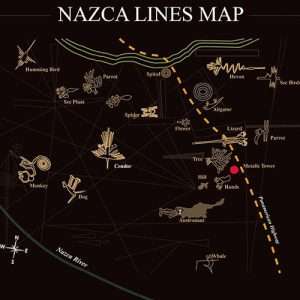 At the same time his breathing would nearly stop. Awareness of the outer world and even bodily sensation would diminish and perhaps disappear. His whole existence would focus on the one issue he wanted to understand. Bear in mind that he probably had more than the usual power of concentration. A lifetime of seeking answers to great problems had given him much practice. The slowing and limiting of breathing is part of a concentration inward. Simply trying to stop breathing in this state produces anxious reminders of the need for air. First there is the concentration, then the lessened breathing follows. The building up of carbon dioxide in the blood may have something to do with intensifying inner experiences. The problem he was concentrating on would blossom [link to 'flower' symbolism] out in new, rich and surprising ways. He first practiced this approach as a child during morning and evening prayers, which probably lent an inner intensity to the meaning of prayer. Judging from his writings, i would guess he stumbled on this method as a child, used it relatively little during his scientific period, then came back to it when he tried to understand the psyche itself." [Chapter two, 'The Presence of Other Worlds' by W. Dusen]. Put 'flower' in the search box.
At the same time his breathing would nearly stop. Awareness of the outer world and even bodily sensation would diminish and perhaps disappear. His whole existence would focus on the one issue he wanted to understand. Bear in mind that he probably had more than the usual power of concentration. A lifetime of seeking answers to great problems had given him much practice. The slowing and limiting of breathing is part of a concentration inward. Simply trying to stop breathing in this state produces anxious reminders of the need for air. First there is the concentration, then the lessened breathing follows. The building up of carbon dioxide in the blood may have something to do with intensifying inner experiences. The problem he was concentrating on would blossom [link to 'flower' symbolism] out in new, rich and surprising ways. He first practiced this approach as a child during morning and evening prayers, which probably lent an inner intensity to the meaning of prayer. Judging from his writings, i would guess he stumbled on this method as a child, used it relatively little during his scientific period, then came back to it when he tried to understand the psyche itself." [Chapter two, 'The Presence of Other Worlds' by W. Dusen]. Put 'flower' in the search box.
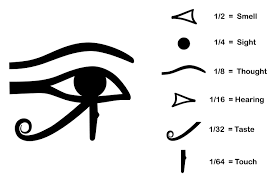
The objective process?
'Anatomy of the Psyche' by Edinger. And/or 'Man and his Symbols' by C. Jung. Anything? i.e.,relative to a 'learning' process - mechanics of? [framework?]. If ONLY in defining a subject.
"When i began drawing the mandalas - i saw that everything; all the paths i had been following; all the steps i had taken - were leading back to a single point - namely to the mid-point. It became increasingly plain to me that the mandala is the center. It is the exponent of all paths. It is the path to the center, to individuation...I knew that in finding the mandala as an expression of the self, i had attained what was for me, the ultimate. Perhaps someone else knows more, but not me." [C. G. Jung].
REFRESHER: ''The ego {personal identity} is at the center of consciousness''.
Question. ''Middle Pillar''? {Isiah 19:19?}.
The Middle Pillar Exercise / I. Regardie.
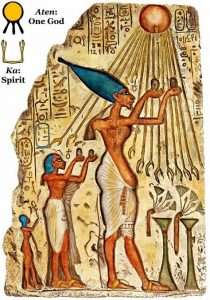

Sanity or insanity? American or UN-American?
As seen from a different perspective: "So what is the true habitat of the soul? Clearly it is not merely a place. It is the life force beyond our mistaken notion of ourselves that is seeking to come through us and accomplish its work of goodness in the world. It is that 'mysterious' presence that can overcome solitude, meaninglessness, and despair. Moreover, not only is it always there - deep within - but it is seeking us more {top down?} than we are seeking it {bottom up?}. This habitat is common to us all. We are not merely separate , disconnected life forms as the senses suggest. We are all connected and rooted in the deeper life that brought us into being. This habitat is our source of hope and sanity in a world of chaos...To become connected to that inner spiritual home, is to come into contact with the very mystery of our existence. And the more we enter our true habitat at the center of our very being the more we are made whole..." ['Wisdom of the 4th Way'. Parenthesis, this readers. Continued elsewhere].

Have the loonies taken over the asylum or is it the monkeys in the orchard?
Analogy?... "Contemplation of the image becomes a mental itinerary, an inner accomplishment; the image fulfils the function of a mandala. Because each of the elements is presented not in its proper dimension, but being that same dimension, to contemplate them is to enter into a multidimensional world, {'astral'?} to effect the passage of 'tawil' through the symbols. And the whole forms a unity of qualitative time, in which past and future are simultaneously in the present." [from the book by T. Cheetham].
''...in which past and future are simultaneously in the present'' = eureka moment by way of 'the objective view'. Anything? Try ''simultaneously''.
'On Having No Head: Zen and the Rediscovery of the Obvious' / D. E. Harding.
"A meditation or introversion which has become deep and profound could be described in very much these terms. And if we refer to individual texts and philosophies of Yoga and concentration, we shall discover that it is in the deepest meditations that the 'spinal' spirit - fire - which is called the Paraclete in the New Testament, Speirema by the Gnostics, and Kundalini by the Yogis - is aroused. It is such a deep indrawn condition that the philosopher's matter contends with 'fire.' ''[ Chapter 4, 'The Philosopher's Stone'. Mentioned elsewhere]. Put ''Kundalini'' in the usual box. Then try ''meditation''. All before those first impressions take hold.
One could also apply the above to the word ''study''. Framework of. Benefits of. i.e.,..
"...in the Book of the Dead, the term ''Sema [Snai] Tawi'' is used. It means ''Union'' of the two lands of Egypt.'' The two lands refer to the two main districts of the country, North and South, and in a mystical sense they refer to the gods Heru [the north] and Set [the south land]- who are elsewhere referred to as the spiritual Higher Self and lower self of a human being, respectively. Thus the term Sema Tawi is compatible with the Indian Sanskrit term ''Yoga,'' which also means union of the Higher Self and lower self ..." [Extract from the book by S. Ashby. Mentioned elsewhere]. Try ''meditation''. Benefit of, [if only] in relation - to subject matter. And/or...
"Other references may be found in the works of the Mohammadan Sufis. So some of the Sufi fraternities {as the Naqsh-bandi} are said to have devised, or rather borrowed, from the Indian Yogis the Kundalini method as a means to realisation....Correspondences also found in the Maya Scripture of the Zunis called the Popul Vah....We find similar notions {keys?} in systems other than Indian, from which possibly in some cases they have been borrowed. Thus descriptions are given of the three centers: 'Mother of Brain' or 'Spherical Heart' and/or ''lily Heart''..." [Page 2 'The Serpent Power' / J. Woodroffe].
Exercise: Attempt a 'connection' with ''lily''.
''Intelligence of the heart''?
''Nelumbo nucifera, also known as Indian lotus, sacred lotus, or simply lotus, is one of two extant species of aquatic plant in the family Nelumbonaceae. It is sometimes colloquially called a water lily, though this more often refers to members of the family Nymphaeaceae.
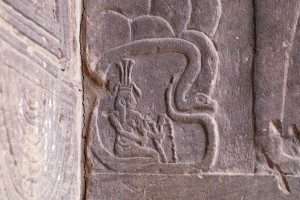 Lotus plants are adapted to grow in the flood plains of slow-moving rivers and delta areas. Stands of lotus drop hundreds of thousands of seeds every year to the bottom of the pond. While some sprout immediately, and most are eaten by wildlife, the remaining seeds can remain dormant for an extensive period of time as the pond silts in and dries out. During flood conditions, sediments containing these seeds are broken open, and the dormant seeds rehydrate and begin a new lotus colony.'' [Wiki].
Lotus plants are adapted to grow in the flood plains of slow-moving rivers and delta areas. Stands of lotus drop hundreds of thousands of seeds every year to the bottom of the pond. While some sprout immediately, and most are eaten by wildlife, the remaining seeds can remain dormant for an extensive period of time as the pond silts in and dries out. During flood conditions, sediments containing these seeds are broken open, and the dormant seeds rehydrate and begin a new lotus colony.'' [Wiki].
"The task of the scholar of esoteric studies is not to prove that such an invisible 'tradition', hidden behind the veil of historic events, did or did not exist; as such; before the Renaissance; rather, the task consists of trying to grasp and to describe the different facets of the emergence of this idea as it appears in the imaginary and the discourses of the last centuries [and/or millenniums. This readers input]. Quote by A. Faivre.

''The Key to Dreams''. Question. Dream symbolism only? Understand that divine 'bit' relative to the whole to see something deeper - BEFORE - those final two questions are asked.
"To Jung, the imagination was the key to the secret of nature in alchemy, and the secret of the self in analytical psychology. The 'imaginatio' as the alchemists understood it, is in truth a key that opens the door to the secret of the Opus''. [Extract from the book by M. Katz].
By way of an ''objective'' exercise?
'On Having No Head: Zen and the Rediscovery of the Obvious' / D. E. Harding.
"The definition of magic is largely a matter of individual opinion, since it means so many things to so many people., and there are so many claims made in its name. Fundamentally it remains what it always was: Mans most determined effort to establish an actual working relationship through himself between his inner and outer states of being." [Chapter one, 'Magical Ritual Methods' by William Gray]. Think on it relative to that purported universal framework.
Cro-magnon man versus the Neanderthal one?
"Meditation is not a religion. Mindfulness is simply a method of mental training. Many people who practice meditation are themselves religious, but then again, many atheists and agnostics are keen meditators too." [Chapter one, 'Mindfulness' by M. Williams and D. Penman]. One could also therefore 'meditate' on the word 'objective' if only to understand its benefit relative to 'subjective' - in all things- i.e., from both an inner and outer perspective.
'On Having No Head: Zen and the Rediscovery of the Obvious' / D. E. Harding.
"The respected scholar Dr. David Frawley, Director of the American Institute of Vedic Studies, writing in the bimonthly journal 'Yoga International' [oct/nov. 1996], states - ' Yogananda can be said to be the father of yoga in the West - not the mere physical yoga that has become popular, but the spiritual yoga - the science of self realization - that is the real meaning of yoga." [Extract from the book 'Autobiography of a Yogi'. Mentioned elsewhere].
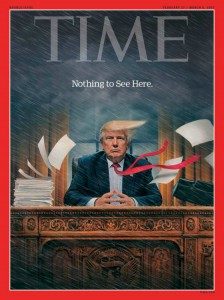
Hero or zero? Accident waiting to happen? Third time lucky?
 "The reader may recall that the original meaning of ''psychologist'' was ''psych-ology,'' - ''the study of the soul.'' Over the years, however, the definitions of psychology was changed from the ''study of the soul,'' to ''the study of the mind,'' to ''study of consciousness,'' and finally to the ''study of behaviour.'' One humourist observed that this progression could be summarized as follows: ''First psychology lost its soul, then lost its mind, and then lost consciousness. Finally it became a behaviour problem!" [First paragraph, first page to the book, 'The Science of the Soul' Vol 3, by R. Siblerud].
"The reader may recall that the original meaning of ''psychologist'' was ''psych-ology,'' - ''the study of the soul.'' Over the years, however, the definitions of psychology was changed from the ''study of the soul,'' to ''the study of the mind,'' to ''study of consciousness,'' and finally to the ''study of behaviour.'' One humourist observed that this progression could be summarized as follows: ''First psychology lost its soul, then lost its mind, and then lost consciousness. Finally it became a behaviour problem!" [First paragraph, first page to the book, 'The Science of the Soul' Vol 3, by R. Siblerud].
As an example - study the following - to define something - relative to a subject - before asking [oneself?] - those bigger two questions..."Just as the practice of concentration is the ''art of forgetting'' and the practice of profound 'communion', or meditation, is the mastering of the ''art of sleeping'', so does the 'contemplation' of authentic initiation signify the mastering of the ''art of dying''. [Extract from the book by Tomberg]. Further clues in Part 1.
Forgetting/Remembering.

Who is the 'bum'?

Who is the patriot?
"For everyone who asks receives, and he who seeks finds, and to him who knocks it will be opened." New Testament.
Side note: In almost any other democracy, Hillary Clinton would be president today. She won the popular vote but still lost the election. So what happened?
The Electoral College is a uniquely American process enshrined in Art. II, Sec. I of the U.S. Constitution through which the President and Vice President are elected. Each of the 50 states (and the District of Colombia), has as many electors as it has Representatives and Senators in the Congress. There is a total of 538 votes, and at least 270 are needed to win the presidency.
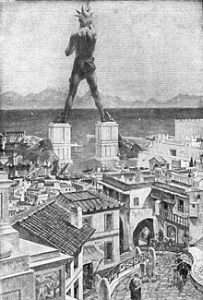
The Colossus of Rhodes: “To you, O Sun, the people of Doric Rhodes raise this bronze statue which reaches Olympus after calming the waves of war and crowning their city with the spoils of the enemy. Not only over the seas but also on land they light the sweet torch of freedom. “
Votive inscription on the Colossus.
That year {2016} Clinton won 228 electoral votes while Donald Trump won 290, according to the most recent figures. But in terms of the popular vote, she won 60 million votes compared to Trump’s 59.8 million.
Shouldn’t the candidate with the most votes get the spoils?
Again, the Electoral College is enshrined in the founding documents of the Republic and changing the U.S. Constitution can be incredibly hard, especially in these divided times. It can be done either by a two-thirds majority vote in both the House and Senate through a joint resolution, or by a constitutional convention called by two-thirds of state legislatures. No amendment has ever been passed using the convention method.

'Back' of the dollar bill.
The United States Constitution has been such an enduring document precisely because it is so hard to change, and that’s why the Electoral College will probably be around for the foreseeable future."
Should it not be 'fine tuned' like everything else in life! i.e., Democracy at work. ONE rule for all.
Continued: "Magic is an inner science, an ancient system of psychology."[Chapter 3, 'Astral Doorways' by J. Brennan]. Put ''magic'' in the box to understand its full meaning. Not just its 'ritual' one.
"Magic may be said to be that science which deals with the mental and moral powers of man, and shows what control he may exercise over himself and others." [Introduction to the book by F. Hartman].
"The joy of good conscious is the accord between the moral rhythms of the 'lower' and 'higher' self. The beatitude [Matthew v,8] promising those who have a pure heart that they will 'see' god..." [Extract from the book by Tomberg].

The smell of Chaos?

A SENSE of sanity. Breath of fresh air?
"The 'good life' is a process. The good life is a process, not a state of being. It is a direction, not a destination. The good life constitutes a direction selected by the total organism, when there is psychological freedom to move in ANY direction." [Taken from Part three, 'on matters of existence' from the book, 'Striking Thoughts' { Bruce Lee's Wisdom for Daily Living} by J. Little.
"For the soul grows and progresses as comprehension and intuition expand through successive acts of the spirit on the road of the Magic of Light. The wings then grow stronger, the flight itself grows longer, and the inner lamp fed on the Oil of wisdom remains constantly burning."
Understanding the 'Divine bit' relative to that framework [i.e.,A/B/C] gives that word ''magic'' a possible empirical framework to it. Something that can be understood and defined by objective analysis.
Or Daughter of fire’. By I.Tweedie. Or ’Living with Himalayan masters’. By S.Rama. To name but a few. All telling their own story within that framework of lower/ higher. All explained within those archetypal keys. Try and spot some. Put them together to understand the whole. Gurdjieff doing the same...but more in the vein of Plato. Attempting to guide the reader through that same maze of concepts and symbols within his three books. Using his own ’adventures’ as tools to that end as Plato does with his ‘philosophical’ ones...and like Plato leaves some of his work left ‘unfinished’. As do most authors of this subject. One of those archetypes. Indicative of an ’unfinished’ journey. Leaving it to the reader...to ‘finish’ it off...within his/her own journey.
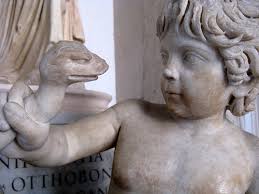 "Why did he leave his Third Series unfinished and apparently give up his intention to publish it?" [Foreword to the book 'Life is Real, Only Then, When i Am' by G. Gurdjieff]. Question. What does the title imply?
"Why did he leave his Third Series unfinished and apparently give up his intention to publish it?" [Foreword to the book 'Life is Real, Only Then, When i Am' by G. Gurdjieff]. Question. What does the title imply?

"If you describe something or someone as an accident waiting to happen, you mean that they are likely to be a cause of danger in the future, for example because they are in poor condition or behave in an unpredictable way. A lot of the city's buildings are accidents waiting to happen."
"Although Paracelsus indeed calls alchemy an art, with Vulcan its artist - denoting a more practical aspect - he also states that alchemy means: 'to carry to its end something that has not yet been completed.' It is this unfinished business that the 'great work' is concerned with: the idea that the universe is unfinished, and that we are co-creators in completing it by completing ourselves. This task is not only a singular 'heroic' journey but a mythic and universal one..." [Extract from the book 'The Magister'].
The 'unfinished' Obelisk of Aswan. 42 metres or 137 feet. Enlarged elsewhere.
'Eye of the Needle' ?
Cleopatra's?

R.I.P
{Synchronistic?} example of something {i.e., that 'something' that is being implied above}: "It was yellow sulphur and white lead added to natural rubber that led to Goodyears 'rubber' that we know of today - but only when it was {accidently?} left on a hot stove - the process of which - we now call vulcanization." ['Plastic: How it Works' / narrated by Mark Miodownik].
Phaistos /He-phaistos? {The 'lamed' one}.

A personal effort?
"The standing pillars found in various enclosures at Gobekli-tepe are regularly between 6.5 and 10 feet in size and are thought to weigh between 5.5 and 16.5 tons apiece {five and fifteen metric tonnes}. Even more of an enigma is that sitting in a quarry a quarter of a mile away from the occupational mound is an unfinished T-shaped monolith..." [Extract from the book 'Gobekli Tepe' by A. Collins].
Question. What do 'pillars' represent?
That link to Freemasonry's main character...Hiram Abif, who left Solomon-s temple 'unfinished' when 'killed'.[sacrificed link]. That link to Horus and his 'battle' with Set, of which each student consciously or otherwise has to identify with as an aid to understanding their own 'lower' and 'higher' within their own journey. Indicative of Freemasonry-s true purpose to each individual, as speculated and attempted by the authors of the 'Hiram Key', i.e.,Hiram = 'Kingly'. Abif = 'the lost one'. Freemasonry-s equivalent of the higher within the lower.
That 'Kingly' state only achieved through an inner awareness, when the circle will be complete. When Solomon-s temple will be 'finished',i.e., in relation to the individual.
Refresher: "The Kingdom of Heaven is within you. The time has come for external forms and expressions to be left behind. There is no Temple in the heavenly Jerusalem, for religion has no place in heaven. Man is his own temple,[key] and his heart is the altar."
 Understanding the above, defines what is written below [i.e.,''verily; verily'']..."She acknowledges 'groping in the dark' in some areas, and when discussing 'secret societies' emphasises: ...these groupings are intended only as hypotheses which might guide future investigators along a historical path which has not yet been trodden..." Quote by Frances A. Yates. Together with...
Understanding the above, defines what is written below [i.e.,''verily; verily'']..."She acknowledges 'groping in the dark' in some areas, and when discussing 'secret societies' emphasises: ...these groupings are intended only as hypotheses which might guide future investigators along a historical path which has not yet been trodden..." Quote by Frances A. Yates. Together with...
Antoine Faivre puts the role of the scholar thus:...those of us who study it [i.e., esotericism] are not only called upon to be scholars, but detectives who are able to follow its often elusive traces..." [Both extracts from the book 'The Magister]'.
A working example: "This work attempts to express the teaching given to a disciple of an Egyptian sage in the framework of the Theban temples. If, in following his progress, we could discover the method employed by his 'masters', we would find ourselves in possession of several keys to the decipherment of their symbolic teachings." ['Her-Bak: Egyptian Initiate' / Isha Schwaller De Lubicz].
"The Kingdom of Heaven is within you. The time has come for external forms and expressions to be left behind. There is no Temple in the heavenly Jerusalem, for religion has no place in Heaven. Man is his own Temple. A mans heart is the altar of god...." [First chapter,{'The inner Quest'} from the book 'The Mind of Christ' {Meditations on Christian Themes} by Anthony Duncan].
Analogy of same...'Who Is in My Temple' AND 'In The Temple of Silence' ['Cosmic Chants' by Paramahansa Yogananda].
That same link to the 'unfinished' great pyramid and its 'missing',['lost'] capstone, in relation to ..."the stone that the builders rejected". Some say only completed within the third and fourth dynasty, when the capstone was finally 'put into place.' [if only for a certain 'duration'].
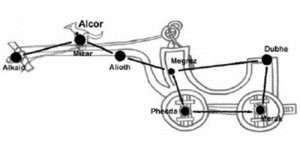 Capstone and 'god head', one of the same thing. Sumerian equivalent the word 'Mu' [cone shaped, 'chariot'] relative to 'Me-s' [aspects of] all within the 'Apin' ["an object that ploughs through." Chapter 5, 'The 12th Planet']. That final link to the Sumerian word 'Shem',[explained within]. Greek equivalent , Omphalos stone. Sometimes shown with a serpent entwined [externally]. Think about it. Especially in relation to the onlooker / observer, [or 'beginner']. Look up ''plough'' to 'see' what the author of the 12th Planet could not see.
Capstone and 'god head', one of the same thing. Sumerian equivalent the word 'Mu' [cone shaped, 'chariot'] relative to 'Me-s' [aspects of] all within the 'Apin' ["an object that ploughs through." Chapter 5, 'The 12th Planet']. That final link to the Sumerian word 'Shem',[explained within]. Greek equivalent , Omphalos stone. Sometimes shown with a serpent entwined [externally]. Think about it. Especially in relation to the onlooker / observer, [or 'beginner']. Look up ''plough'' to 'see' what the author of the 12th Planet could not see.
Side note: On the Euphrates it seems to have been associated with Hasisadra or Xasisadra, the 10th antediluvian king and hero of the deluge, while with the other adjacent stars, it was the lunar station Apin - the Cannel {'Canal'?} - and individually the Star of the Foundation. The corresponding stations, in Persia, in Sogdiana and in Khorasmia were also determined by this star." [Info. on The Urn of Aquarius: 'Star Names and Their Meaning'].
Side note: ''The caravans of planets roaming - through endless space without a goal.'' [Page 14 'Russia: Past, Present and Future'].
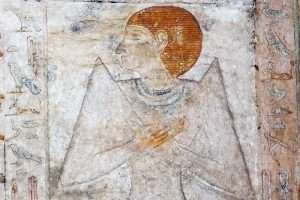
The caravan route along the spice trail - from east to west. ['Avdat: Ancient Spice Route' / Magdala].
''The spice Turmeric is thought to gets its name from the Latin meaning 'deserving earth'....'' ['The Chase'].
''Turmeric is a flowering plant, Curcuma longa, of the ginger family, Zingiberaceae, the rhizomes of which are used in cooking.''
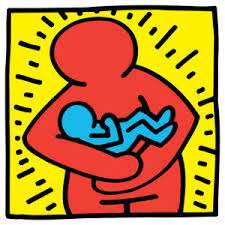
Mother 'rose'?
And/or: ''At the cross of her ''station keeping'' stood the mournful mother weeping - close to Jesus to the last. Briused, derided, cursed, defiled; she beheld her tender child; all the scourges rent.'' [10th 'Station of the Cross' / Magdala / Day 45 'Easter Week' / Kathleen Nichols].
Continued: That link to the 'unfinished' west walls of both Herod's temple and Rosslyn chapel, 'the tail end of something and the beginning of something else'. That final link to the 'unfinished' work of Solomon's temple by its main 'architect', Hiram Abif. Only 'completed' by the candidate, [symbolic of each and every one of us] when that 'inner' understanding becomes universal by way of the individual effort, by way of- the lost word - that has to be found [Freemasons]. Think on it relative to the meaning of the word ''Logos''.

'Carpet of green'. Contraction or Expansion?
'Mans Search for Meaning' / Viktor Frankl.
"There is an old saying that little children and fools should never be shown a thing until it is finished. It is a saying that comes from the East, for it is illustrated by the story of the weaver of carpets who sat in his open-fronted shop in the busy market place. Passers-by watched him at his work and commented on his progress. They pointed to the dingy threads of the spring warp and the innumerable knots, joins, and loose ends. If he had listened to them he would have thrown down his handiwork in disgust....Finally, at the end of many moons, the clumsy great loom was creakingly unwound, the ends of the warp were tied, and the glory of the carpet exposed to the wondering gaze of the crowd....The scoffers were to ignorant to realize that a carpet is worked inside out. Only the wise artist-craftsman knew that." [Page 57 'Glastonbury: Avalon of the Heart' / D. Fortune].
Embossed/Debossed?
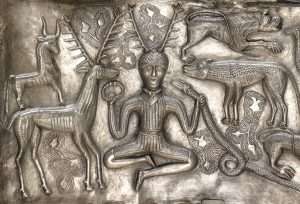
Both ''seated'' on their appropriate THRONES.
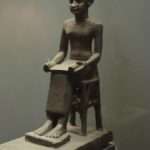
Imhotep.
Analogy {Macro?}, with the same intent..."In whatever form it takes, the loss of connection between the external {exoteric?}, public form of the Book and the meaning hidden within it {esoteric?} gives rise to a drama {'feast of fools'?} common to all the religions of the 'Book'. If the true meaning of this Book is the interior meaning {'gnosis'?}, hidden under the literal appearance, from the moment that men fail to recognise or refuse this interior meaning, from that moment they destroy the integrity of the Word, of the Logos, and then begins the drama of the 'Lost Speech'." [From the book 'The World Turned Inside Out'. Mentioned elsewhere. All emphasis, this readers]. Try ''method''.
Tower of Babel story V Gnosis? Winner = higher or lower?
Lost Pleiad?
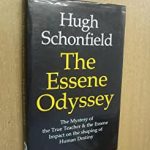
''Teacher''?
Represented as the "lost tribe of Israel", or Islams claim that all living souls have the potential 'to be', 'Muslim', i.e.,submit to 'god'. Think about it, relative to this 'subject', i.e.,in relation to 'higher', from that 'lower' start point, relative to the self. Hebrew equivalent - Jacob - ''he who wrestled with god''. Those links and connections between such words and principles as to 'submit' and/or 'wrestle' with ones 'higher' self - in order to define and understand something. Hence the reason why.... 'Allah' is eternal, transcendent, [higher/lower] and absolutely one [whole]." Allah is self sustaining, and neither begets nor was begotten." Think about it, relative to, 'Yahweh'. Together with... "Ikhnaton [Akhenaten] was the first individual we know of in history to shape his times by rejecting the sordidness of religion and the indecent wealth and lavish rituals of the temples. Some scholars suggest that he was the first person to understand rightly the meaning of divinity. For instance, Ikhnaton forbade his artists from making images of Aton on the grounds that the true god has no form. [Part three. 'The Wisdom of the Fourth Way'. Mentioned elsewhere].
'Mighty conch's' blown on ''the holy plain, on the field of Kuru'', who were ''gathered together eager for battle''. [ 'First Discourse' of the book 'The Bhagavad Gita' {The Lord's Song, i.e.,higher over lower or at least; with that potential 'in sight'}.
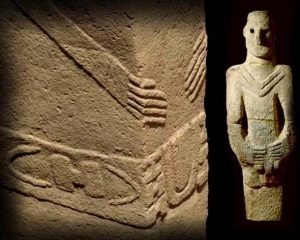
''Creative'' by way of ''transforming fingers''? or just a masturbator?
Together with..."The Buddhists maintain that there is no creator, but an infinitude of creative powers, which collectively form the one eternal substance, the essence of which is inscrutable....hence not a subject for speculation for any true philosopher. Socrates invariably refused to argue upon the mystery of universal being, yet no one would have thought of charging him with atheism, except those who were bent upon his destruction"....
Together with, "Therefore, when the Pantheists echo the Upanishads, which state, as in the Secret Doctrine, that 'this' cannot create, they do not deny a Creator, or rather a collective aggregate of creators, but only refuse, very logically, to attribute 'creation' and especially formation, something finite, to an Infinite Principle". [page 4,and 7, 'The Secret Doctrine'. Mentioned elsewhere].
"Inscrutable'' in relation to ''ineffable''. Enlarged elsewhere.
 "The Prophet was quoted as saying, 'I have seen my Lord in the shape of a beautiful youth'. [Link to ''youngest'' symbolism. Think on it]. Perhaps this is the manifestation of the child of the heart. The image is the mirror. It becomes a means, rendering visible that which is invisible. The truth of 'God most High' is exempt from and free of any kind of description, or any kind of image or form. The image is the mirror [key], though what is seen is neither the mirror, nor the one who is looking in the mirror. Ponder on that and try to understand, because that is the essence of the realm of secrets." [Chapter 9, 'The Secret of Secrets' by Al-Jilani]].
"The Prophet was quoted as saying, 'I have seen my Lord in the shape of a beautiful youth'. [Link to ''youngest'' symbolism. Think on it]. Perhaps this is the manifestation of the child of the heart. The image is the mirror. It becomes a means, rendering visible that which is invisible. The truth of 'God most High' is exempt from and free of any kind of description, or any kind of image or form. The image is the mirror [key], though what is seen is neither the mirror, nor the one who is looking in the mirror. Ponder on that and try to understand, because that is the essence of the realm of secrets." [Chapter 9, 'The Secret of Secrets' by Al-Jilani]].
N.B. 7th King of Copan = 'The Jaguar Mirror'. 16 {'Holy' Kings} in total. The Dynasty took a 'turn for the worse' from the 13th onwards. The 13th = 18 Rabbit. Synchronistic? i.e.,what does the rabbit represent?
"For the law was given through Moses; grace and truth came through Jesus Christ. No one at any time has seen God. The only begotten son, who is in the ''bosom of the father,'' he has revealed him." [John 1:18-19]. Anything? [i.e.,put ''bosom'' in the search box].
Old/New Testament equivalent. "...and in the parable of ''poor Lazarus'' recounted by Christ himself, ''poor Lazarus'' finds himself at a place, or in a state, which is described as ''Abrahams bosom.'' [Luke xvi 19-31].
For a further headscratch, why have the numbers 19 - 31 been used? Link to the word and/or principle [if only within this subject] of ''unredeemed,'' i.e., significance of; relative to a further development and/or 'improvement' - represented [within number symbolism] from thirty onwards.
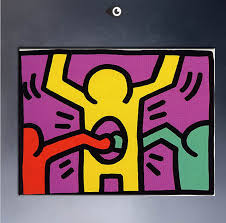 "Sappho's Eros burns away our fixed notions of who we are...Eros ['agape'] thus opens a gap, a split, a hole in our lives. Eros is this gap, this space of desire, held between boundaries. It moves across it like lightening...It is not something that can be expressed in words...it is like a flame kindled by a leaping spark. " [Extract taken from 'Alexandria' vol 2 by D. Fideler]. try ''gap''.
"Sappho's Eros burns away our fixed notions of who we are...Eros ['agape'] thus opens a gap, a split, a hole in our lives. Eros is this gap, this space of desire, held between boundaries. It moves across it like lightening...It is not something that can be expressed in words...it is like a flame kindled by a leaping spark. " [Extract taken from 'Alexandria' vol 2 by D. Fideler]. try ''gap''.
"No single religion can fully express the Reality of God." [Ibn Arabi]. Taken from 'The Sacred History' by J. Black.
"Some people expect to see God as they would see a cow." [Quote by Eckhart].
"God is simple. Everything else is complex. Do not seek absolute values in the relative world of nature." [Extract from the book 'Autobiography of a Yogi'. Mentioned elsewhere].
'God and The Unconscious' by Victor White.
"Hence the saying that ''No man hath at any time seen God."...He can only be deduced." [Extract taken from Chapter 11, 'The Cosmic Doctrine' by D. Fortune].
Analogy of same..."The Supreme Divinity, the 'deus abscondita', can never be any kind of thing and is only encompassed by indirection by a negative theology. It is Being - not a ''being''. It is impossible to express this mystery of Being which brings each existent {aspects of?} into Being..." [Corbin quote from within the book by T. Cheetham]. Link to Manifest / UNmanifest. 'See' it? That final link to the word 'gnosis' - its application, purpose and end result.
Question. ''Compass'' in relation to 'encompass' / 'compassion'?
"God is a hypothesis which is very probably necessary." Quote from within the book by Eliphas Levi. Together with. ''To make light visible God had only to postulate shadow."
God/dog = higher/lower- if only in the 'shadow' sense of the 'word' ?
'Logos' in relation to 'shadow' as a means...?
"No one has ever seen God at any time; the only son, which is in the bosom of the father, he has made him known." [John 1:18]. Link to ''son of'' its intent and purpose - regardless of 'historical fact' or otherwise [i.e.,relative to a learning curve, i.e.,''penetrating into divine bosom/heart'' symbolism]. That link; if understood correctly; defines the next paragraph and/or 'statement': ''For the Father judgeth no man, but hath committed all judgement unto the Son." [John 5:22] - that ''UNknown'' factor now a ''known'' one, i.e.,..
"To realize that one cannot know [god] is to know." [Quote by Abu Bakr. Extract taken from chapter 2, 'The Bezels of Wisdom'].
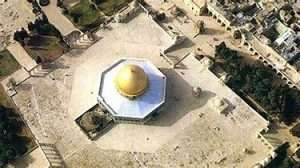 "Three years after first making contact, God at last told Muhammad that the time had come to spread the word more generally. With some trepidation, he dully informed his fellow Meccans that he was a prophet - the last in a line that ran via Jesus and Moses all the way back to Adam. Then, more boldly, he revealed that al-lah had neither companions nor daughters. They should pray twice daily towards Jerusalem, and seek peace through submission to the divine - a state encapsulated by the Arabic word 'Islam'. Only then would they begin to appreciate Gods true nature: a spiritual presence ''nearer to man than his jugular vein." [Chapter one, 'Heaven on Earth: A Journey Through Sharia Law' by Sadakat Kadri].
"Three years after first making contact, God at last told Muhammad that the time had come to spread the word more generally. With some trepidation, he dully informed his fellow Meccans that he was a prophet - the last in a line that ran via Jesus and Moses all the way back to Adam. Then, more boldly, he revealed that al-lah had neither companions nor daughters. They should pray twice daily towards Jerusalem, and seek peace through submission to the divine - a state encapsulated by the Arabic word 'Islam'. Only then would they begin to appreciate Gods true nature: a spiritual presence ''nearer to man than his jugular vein." [Chapter one, 'Heaven on Earth: A Journey Through Sharia Law' by Sadakat Kadri].
"To him is due the primal origin of the heavens and the earth. How can he have a son when he hath no consort..." [Quran 6:101].
"...hence it is clear that God is not properly called a substance, and that he is better called by the more usual term - essence - which term is a right and proper one; so much so indeed that perhaps God alone aught to be called essence." And/or "God is more myself, than i myself am." [First quote - St. Augustine, De Trinitate vii, 5, 10. Second quote - from within the book by Tomberg].
Hence: "Clement of Alexandria elucidates the idea that Jesus is the 'son of god' by explaining: 'The Son is the consciousness of the Father.' The 'Father' is the Mystery...the dazzling darkness of UNconscious Consciousness."
Think about it, in relation to what all imply by the word 'divine'. Regardless of place, time, or culture. From its beginning to the present day.
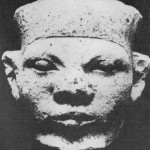
'Spirit' ?
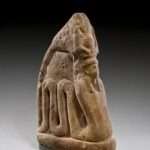
'Soul' ?
Now in its 'broader' context {Macro, i.e.,as one example}: "The other aspect of the Hibernian Mysteries which is reflected in Druidism is not what is only connected with the soul, but what is connected with the spirit, namely, the 'creation' of the world {in the Micro sense of the word?} - and its opposite pole Resurrection from the 'Death' of the world. In this, the masculine element {and/or principle?} rules. This is the 'male' nature of the Hibernian Mysteries. The 'Father' -God - the Great Spirit - of the old western mysteries, was felt as embracing the entire Universe, so that his nature was equally manifest in the fact of death as in the fact of life. Everything was ''in the Father'', and the Father was in everything. So it is true to say that ''Death is the Father''. We come from the 'father', and we return to him, through that part of him which is death and which is his extreme manifestation in the world of matter. Man has ''contracted'' the whole universe - the very being of the 'father' - into his body at birth; at death the body is dissolved, and as a spirit man expands again into the universe, but in the full experience of his ''I AM''. "
Question. ''I AM'' in relation to 'spirit' and/or 'soul'. Which and why? Understand that to define ''Moses''.
And/or: "True to Druidic pattern, the nine rites given in the Pheryllt are grouped into three groups of three, each set denoting a past-present-future 'relationship'. The second of these sets, has been chosen as most appropriate to this chapter: 1 = Song of Taliesin {I have been...}, the past. 2 = Song of Amergin { I am... }, the present. 3 = Song of Bluestar {I will be...}, the 'future'.''
Which represents the feminine aspect?
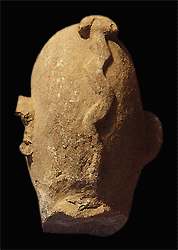

"Wiradjuri people created marara by removing a large slab of bark, then intricately carving muyalaang into the fresh tree surface. Muyalaang often appear as a series of curved lines or geometric patterns like diamonds and zig-zags." AND/OR: In the branch of Jewish mysticism known as Kabbalah, Daʻat or Daath (Hebrew: דַּעַת, romanized: Daʿaṯ, in pausa: דָּעַת Dāʿaṯ, lit. 'knowledge')[1] is the location (the mystical state) where all ten sefirot in the Tree of Life are united as one.... Daʻat is not always depicted in representations of the sefirot; and could be abstractly considered an "empty slot" into which the germ of any other sefirot can be placed. Properly, the Divine Light is always shining, but not all humans can see it.[3]
Question. Objectifying the moment? Recall Mr Higgs of Higgs Boson fame who himself 'discovered' something while walking. Recall 'its' influence in such subjects as physics. The only difference is - is that one is external to the other?
Question. Which one?
And/or: "Who am I? Where am I going? What is it all for? If these questions have been running through your head {'back of'?} lately, you have begun the ultimate quest, which in one form, is to answer questions such as these, and in another, is perhaps the attainment of the Holy Grail." ['Magic for the Aquarian Age' / Marian Green].
'Who Am I' {R.I. Xmas Lectures / Alice Roberts 2018}.
REFRESHER: "....the words 'idea', 'wisdom' and 'vision' ALL originate from the common Indo-European root which means ''to see''. An idea is an insight, an inner flash of illumination that can result in 'wisdom'." [From the book 'Alexandria' / Vol 3 ].

Ralph Tawangyaouma, Hopi Stamped Silver Bracelet
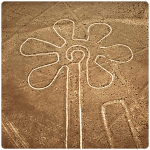 A working example: ''The ancient Greek word psyche means ''butterfly'', a creature who undergoes a long period of metamorphosis....before transformation or awakening is possible...'' [Page 152 ''The Search For The Beloved' / J. Houston].
A working example: ''The ancient Greek word psyche means ''butterfly'', a creature who undergoes a long period of metamorphosis....before transformation or awakening is possible...'' [Page 152 ''The Search For The Beloved' / J. Houston].
''The Cosmic butterfly represents that part of your cosmic intelligence that has lived through and has become the story of a FULL complete CYCLE of metamorphic transformation.....It weaves the future patterns in your life as well as the world around you {karma i.e., 'like attracts like'?}, as it flutters from flower to flower and from dream to local reality and all thats inbetween {unconscious - conscious link}.....It prepares the birth of our new era....It is the source archetype of the....'' [Page 196 ''The Quest of the Rose: Cosmic keys of our Future Becoming' / A. Smitsman and J. Houston. Brackets - this readers].
''The mind is more like a butterfly, to be caught in a gossamer web {'net'?} rather than a hard steel trap.'' [Page 130 'The Path Through the Labyrinth' / M. Green].
Cage?
N.B. Gossamer = small spider.
Analogy: {if only in the Egyptian sense of the word}: From the Egyptian Book of the Dead Chapters 17 in relation to ''Who is this person that is being spoken about'' which the author {M. Ashby} defines as ''one of the most important chapters'' to Chapters 25/26 in relation to ''I know who I am''. Both the above in relation to:
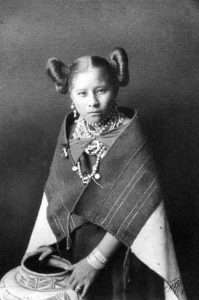
"The impressive look is called the “squash blossom whorl”, a traditional hairstyle for unmarried girls. At the onset of puberty, historically young girls went through challenging initiation ceremonies, marked by a day of grinding corn at the paternal grandmother’s house. She would receive a new name and assume the squash blossom hairstyle, the sign of marriageability and fertility." 'Emergence' to enlarge.

Ralph Tawangyaouma, Hopi Stamped Silver Cup.
"Important teachings contained in these chapters is the idea of remembering. Spiritual enlightenment is not something new that is added to a person. It is a gathering and making whole one's consciousness so as to discover one's true identity as one with the 'divine'. Thus the initiate asks that they be given their 'name' in the Great House. [Pages 179-187 and 212-3].
Key words mentioned: ''striving'' / ''unbolted'' {as opposed to ''bolted''} and ''cakes'' {as a reference to east} West being the 'aim'. As a means....?
Analogy {i.e., from a different perspective}: "The reiterated 'I have been' and 'I was' of Gwion's Hans Taliesin riddle suggests that the Boibel-Loth alphabet, which is the solution, originally consisted of twenty mystical titles of a single Protean male....which was kept secret....But why does it contain so many approximations to Biblical names taken from Genesis and Exodus....all names concerned with Sinai, Southern Judea and Edomite Dead Sea region? This is the region which the Essene communities were settled...." [Page 148/9 'The White Goddess'].

'Carpet of green'. Contraction or Expansion?
Continued..."In the Gospel of John we find something quite different. The mother of Jesus, Mary-Sophia, is to be united with the beloved disciple: ''Woman, behold thy son!'' John takes the divine Wisdom of the world into his heart. And the last words from the cross are: ''It is finished''. What is finished? Not the mission of Christ, because its fulfilment has hardly begun. But the ''contraction'' of the whole spiritual universe into the material creation of man and the Earth - that was finished. The ''expansion'' was to begin; the redemption {of} the Divine wisdom {or would that be ''from''?} by man was to begin {''bottom/up''?}. The book of Revelation, looking into the far future was its 'first fruits'...John passes over from past to future, because he has the secret of the Creative Word which continues: ''I am with you always, even unto the end of the world''. He 'sees' the future because he has understood the beginning. He is united with the divine Wisdom {'Sophia-Mary'}, whose symbol, from the 'Father', is the 'Dove of the Eternal'." ['The Flaming Door'. All emphasis/parenthesis, this readers].
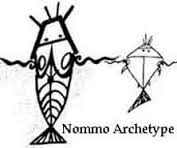 Every culture regardless of time or place has the 'lost one/s' {'UNfinished'?} who will someday 'return'. Including the Dogon tribe, who call that event... 'The day of the fish', [chapter one. 'The Sirius Mystery'. R.Temple]. That link to the book of 'revelations' and its meaning to each individual....once understood. The lost one/s are now found.
Every culture regardless of time or place has the 'lost one/s' {'UNfinished'?} who will someday 'return'. Including the Dogon tribe, who call that event... 'The day of the fish', [chapter one. 'The Sirius Mystery'. R.Temple]. That link to the book of 'revelations' and its meaning to each individual....once understood. The lost one/s are now found.
House Tully ?{ Game of Thrones}.
Symbolic of ‘a learning curve’. Day by day. As it is with any ‘journey’, in any walk of life. Represented with the ‘skull cap’ of among others...Ptah and Imhotep. Indicative of the ‘eternal apprentice’. Why a ‘skull cap’ ? = A "second skin". Get it? Or the word 'skull' and its relevance [i.e.,representation] to the 'divine bit', i.e.,psyche. After all you cannot have one without the other. Could there be a better representation? A more suitable subject in order to define same. Hence that link to the 'crystal skulls, or the 'heads' that are frequently depicted either in sculpture or art form on many cultural 'structures', such as those at Puma Punku. Or the stone heads of South America.
"The mathematically precise arrangement of a crystal evokes in us the intuitive feeling that even so-called 'dead' matter, there is a spiritual ordering principle at work. Thus the crystal often symbolically stands for the union of extreme opposites - of matter and spirit." ['Man and his Symbols'].
The ''Western Way'' [represented by such authors as M. Katz] defines that day to day stuff as ''Order of Everlasting Day''.
"The word 'spiritual' should be associated with the word 'eyes'. This is a reference to the eyes of the mind or heart. To see is to understand." [From the book by T. Nottingham].
Recall what the word 'stone' is symbolic of. All with that common factor in 'mind'. Imhotep who became known as the 'son of Ptah' ['younger' link] who is often described as "the first genuine philosopher, known by name". According to these authors... modern Philosopher being a different 'concept' to its ancient origins. Most commonly known as 'Perennial philosophy'. The subject 'Psychology' a link; in some form or other; to the same i.e., "....psychology has lost touch with its origins and true meaning. ....psychology is the oldest science known to human kind and a largely forgotten one in spite of the fact that never before in history has there been so many psychological theories. Psychological systems can be divided into two categories: 1...Systems which study the person as they find him/her or as they imagine him/her to be [modern systems]. 2...Systems which study the person not from the point of view of what he/she is, or what he/she seems to be, but from the point of view of what he/she may become. These last systems alone explain the forgotten origin and meaning of psychology. According to Ouspensky, psychology is the study of the principles, laws, and facts of mans possible evolution", [part one. 'The Wisdom of the Fourth Way'. Theodore Nottingham].
'Mans Search for Meaning' / Viktor Frankl.
As an example use those three [aspects?] - to define the following..."Just as the practice of concentration is the ''art of forgetting'' and the practice of profound 'communion', or meditation, is the mastering of the ''art of sleeping'', so does the 'contemplation' of authentic initiation signify the mastering of the ''art of dying''. [Extract from the book by Tomberg]. Further clues in Part 1.
 For an attempt of understanding the same; in book form; try..."Psychology and the Perennial Philosophy". S. Sotillos. Only attempt at the beginning of the day. Otherwise keep the kettle close by.... together with a hair net. Or for an attempt of explaining the same, i.e.,'Perennial Philosophy', by way of the 'Geometry' one, try...'The Geometry of Meaning'/ Arthur Young. The origin to the quote.."All meaning is an angle", i.e.,..."I don't recall where i first encountered this enigmatic statement. I do recall that its origin was said to be in ancient Egypt, and i draw great comfort from this confirmation that there was at one time, perhaps so long ago that it was not even registered by Greek thought, a tradition that reflected same conclusions i have reached after a life long effort to formulate meanings without reverting to the circularity found, for example, in dictionary definitions. I would like to call this
For an attempt of understanding the same; in book form; try..."Psychology and the Perennial Philosophy". S. Sotillos. Only attempt at the beginning of the day. Otherwise keep the kettle close by.... together with a hair net. Or for an attempt of explaining the same, i.e.,'Perennial Philosophy', by way of the 'Geometry' one, try...'The Geometry of Meaning'/ Arthur Young. The origin to the quote.."All meaning is an angle", i.e.,..."I don't recall where i first encountered this enigmatic statement. I do recall that its origin was said to be in ancient Egypt, and i draw great comfort from this confirmation that there was at one time, perhaps so long ago that it was not even registered by Greek thought, a tradition that reflected same conclusions i have reached after a life long effort to formulate meanings without reverting to the circularity found, for example, in dictionary definitions. I would like to call this  book an essay in philosophy. However, i should point out that i do not mean philosophy as it is usually practiced today, but the older sense of "the science which investigates the facts and principles of reality". In this sense, philosophy not only encompasses the natural sciences, but explores the implications of the findings of science, and also deals with the relationship between the knower and the known". [An interesting read, especially to someone with a mathematical / philosophical 'vent', [which this reader does not have], especially in relation to his analysis and investigation in critique form, into the word 'metaphysics'].
book an essay in philosophy. However, i should point out that i do not mean philosophy as it is usually practiced today, but the older sense of "the science which investigates the facts and principles of reality". In this sense, philosophy not only encompasses the natural sciences, but explores the implications of the findings of science, and also deals with the relationship between the knower and the known". [An interesting read, especially to someone with a mathematical / philosophical 'vent', [which this reader does not have], especially in relation to his analysis and investigation in critique form, into the word 'metaphysics'].
'Mans Search for Meaning' / Viktor Frankl.
Compass of the Heart?
''The inner guardian is our true North, the keeper of the charts.'' Try 'map' / 'whale'.
And/or: ''Compass'' in relation to 'encompass' / 'compassion'?
"It is shocking that such a profound insight into the philosophical implications of the theory of relativity has had little impact on physicists, it is dismaying that Godel's ideas have failed to catch the attention of philosophers.[ i.e.,that ''time'' is based only on our particular 'internal' experience, and not an actual feature of the physical universe. Customer review / Amazon].
'Being and Time' / Martin Heidegger.
Go to top of page Go to bottom of page
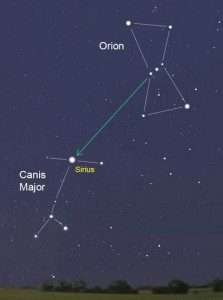 In this atmosphere of neglect, it is hardly surprising that the striking dissimilarity between Godel's two great contributions to the dialectic of the formal and the 'intuitive' has also gone unnoticed. Godel was at once a mathematician realist and a temporal idealist. He concluded from the incompleteness of Hilbert's proof - theoretic system for arithmetic that the Platonic realm of numbers cannot be fully captured by the formal structures of logic. For Godel, the devices of formal proof are too weak to capture all that is true, in the world of numbers, not to say in mathematics as a whole." [Chapter 7, 'A World Without Time: The Forgotten Legacy of Godel and Einstein' by P. Yourgrau].
In this atmosphere of neglect, it is hardly surprising that the striking dissimilarity between Godel's two great contributions to the dialectic of the formal and the 'intuitive' has also gone unnoticed. Godel was at once a mathematician realist and a temporal idealist. He concluded from the incompleteness of Hilbert's proof - theoretic system for arithmetic that the Platonic realm of numbers cannot be fully captured by the formal structures of logic. For Godel, the devices of formal proof are too weak to capture all that is true, in the world of numbers, not to say in mathematics as a whole." [Chapter 7, 'A World Without Time: The Forgotten Legacy of Godel and Einstein' by P. Yourgrau].
"As we present time to ourselves," he said, "it simply does not agree with fact. To call time subjective is just a euphemism." [Same chapter, same book]. Think about in relation to objective. Benefit of.
'On Having No Head: Zen and the Rediscovery of the Obvious' / D. E. Harding.
Something hinted at : {i.e.,from the 'oral' tradition}: "Arthur, my boy,'' Merlyn began, ''if your future plans include studying with me, the first thing you must learn is that time is a man-made invention. And as Druids, we are certainly servants of no man! One must learn to be as free as possible from those concepts with which mankind keeps himself shackled." [From the book by Douglas Monroe].
Question. Pagan mumbo jumbo?
Follow the title of the book or author to see if you agree or disagree. Fit the parts into the whole.
Try and spot those common factors, if you like unraveling puzzles. No better a ‘puzzle’ than Gurdjieff's third book. What does the title imply?, [ "Only then, when i am"]. At the very least you will gain an inner understanding of a new subject and its possible links to other subjects. Rather than relying on those first impressions.

Spot the trickster...
Why? Why according in Hamlets Mill did the study of the ‘Great year’ develop the subject of numbers/mathematics. Or the connection should there be any to Jungs statement that...Myths originate from the inner psyche. "Originally sprang from them", [ ’The Trickster’ /P. Radin ]. Together with no less than Joseph Campbells hints of the word metaphysics within the realms of that same subject. The mythology one, [ ‘Flight of the Wild Gander’. By J. Campbell ]. Remember some authors are aware of this subject. Others are not, i.e.,'The Inner Reaches of Outer Space' by Joseph Campbell. Lots of information relating to 'chakras' throughout mythology....especially in relation to the 'middle' way.
"When i began drawing the mandalas - i saw that everything; all the paths i had been following; all the steps i had taken - were leading back to a single point - namely to the mid-point. It became increasingly plain to me that the mandala is the center. It is the exponent of all paths. It is the path to the center, to individuation...I knew that in finding the mandala as an expression of the self, i had attained what was for me, the ultimate. Perhaps someone else knows more, but not me." [C. G. Jung].
''The ego {personal identity} is at the center of consciousness''. Enlarged throughout.
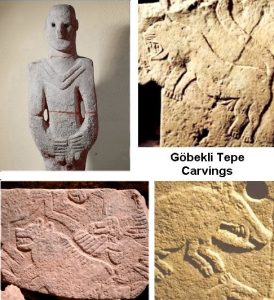 "Tarot cards were merely pictorial representations of the same forces shown in the plays and songs, and told the same eternal story. Possibly the pictures were at one time related to the old oral tradition of worship, as were the Icons used in Eastern Christianity. The pagan worship-system was banned and suppressed, so the images passed into the folk tradition. Only in recent years have the Tarot emerged from anonymity into the clamour of 'occultism', where writers and practitioners forget that no 'secret' body of knowledge is required to account for the images present in the mind of mankind, and that 'magical' orders were open for all in folk-song and ceremonies throughout the centuries." [Taken from the book 'Where is Saint George'. Mentioned elsewhere].
"Tarot cards were merely pictorial representations of the same forces shown in the plays and songs, and told the same eternal story. Possibly the pictures were at one time related to the old oral tradition of worship, as were the Icons used in Eastern Christianity. The pagan worship-system was banned and suppressed, so the images passed into the folk tradition. Only in recent years have the Tarot emerged from anonymity into the clamour of 'occultism', where writers and practitioners forget that no 'secret' body of knowledge is required to account for the images present in the mind of mankind, and that 'magical' orders were open for all in folk-song and ceremonies throughout the centuries." [Taken from the book 'Where is Saint George'. Mentioned elsewhere].
"For we have eaten of the Tree of Knowledge but not of the Tree of Life. Wouldn't you like a bite of that?" Quote by the same, i.e.,J. Campbell. ''Knowledge'' in relation to the contents of this subject. Can you by now understand what the ''life'' quote relates to? What word is used to represent it?
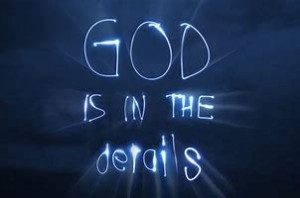 The word metaphysics supposedly an invention of Aristotle...but some believe it was Thomas Aquinas who defined its true meaning. "Those things that we study after having mastered the sciences. That deal with the physical world". What Aristotle was quoted as defining as... ‘First Philosophy’...and others as the ‘Queen of Sciences’. Presently brought up to date...in the world of maybes and possibilities. Narrowing those possibilities down into smaller groups in order to define some logic from the most suitable. The most plausible. What became known at the end of that journey; in the present era; as...Ockhams Razor. Those same possibilities of...in relation to a subject. In relation to a possible journey. A personnel one. Self deception? A collective one?
The word metaphysics supposedly an invention of Aristotle...but some believe it was Thomas Aquinas who defined its true meaning. "Those things that we study after having mastered the sciences. That deal with the physical world". What Aristotle was quoted as defining as... ‘First Philosophy’...and others as the ‘Queen of Sciences’. Presently brought up to date...in the world of maybes and possibilities. Narrowing those possibilities down into smaller groups in order to define some logic from the most suitable. The most plausible. What became known at the end of that journey; in the present era; as...Ockhams Razor. Those same possibilities of...in relation to a subject. In relation to a possible journey. A personnel one. Self deception? A collective one?
Antoine Faivre puts the role of the scholar thus:...those of us who study it [i.e.,esotericism] are not only called upon to be scholars, but detectives who are able to follow its often elusive traces."
"In modern physics , analysis has become so relativistic that it seems akin to the ancient metaphysics. Indeed, physics is far better proof of the role of consciousness within the universe than is psychology. In both 'magic' and in physics, all arbitrary laws are found to be relative." [ Quote within the book by R. Stewart].
 A {working} example: "For exact understanding exact language is necessary. And the study of systems of ancient knowledge begins with the study of a language which will make it possible to establish at once exactly what is being said, from what point of view, and in what connection. This 'new' language contains hardly any new terms or new nomenclature, but it bases the construction of speech upon a new principle, namely the principle of relativity; that is to say, it introduces relativity into all concepts and thus makes possible an accurate determination of the angle of thought - for what precisely ordinary language lacks are expressions of relativity..." ['In Search of the Miraculous']. Keys?
A {working} example: "For exact understanding exact language is necessary. And the study of systems of ancient knowledge begins with the study of a language which will make it possible to establish at once exactly what is being said, from what point of view, and in what connection. This 'new' language contains hardly any new terms or new nomenclature, but it bases the construction of speech upon a new principle, namely the principle of relativity; that is to say, it introduces relativity into all concepts and thus makes possible an accurate determination of the angle of thought - for what precisely ordinary language lacks are expressions of relativity..." ['In Search of the Miraculous']. Keys?
Follow the title of the book to 'see' that {new?} ''angle of thought'' - in its broader context.
"All the fruits of human experience merit being studied and examined - and, according to their merit, accepted or rejected." [Extract from the book by Tomberg. 'Letter xi']. Try ''the fruits of'' in the usual box.
As an example use those three universal aspects - to define the following..."Just as the practice of concentration is the ''art of forgetting'' and the practice of profound 'communion', or meditation, is the mastering of the ''art of sleeping'', so does the 'contemplation' of authentic initiation signify the mastering of the ''art of dying''. [Extract from the book by Tomberg]. Further clues in Part 1.
Symbolic within/of...the inner ego/self of each individual. Represented more often than not with the Bull. Common parlance..."bull in a china shop" or "to take the bull by the horns" and once again the link between the two...that familiar subject. Hence the link to the Mithras 'fable', [ explained elsewhere ]. Defined again within those higher/lower aspects of the self, [ Sumerian = ‘me's’ and/or 'Anunnaki' link ].


"The Steal" : Weaponizing others to do it? The Cowards Way?
A {working?} example: "Taken in itself, a man's being has many different 'sides' {key}. The most characteristic feature of a modern man is the ''absence of unity in him'' and, further, the absence in him of traces of those possibilities which he most likes to ascribe to himself, that is, 'lucid consciousness', 'free will', and a 'permanent ego or I', and the 'ability to do'...Exterior man's being has many different sides: activity or passivity; truthfulness or a tendency to lie; sincerity or insincerity; courage, cowardice; self control, profligacy; irritability, egoism, readiness for self sacrifice, pride, vanity, conceit, industry, laziness, morality, depravity; all these and much more besides make up the being of man. But all this is entirely mechanical in man...Because a modern man lives in 'sleep' {unknown/unaware link}, what knowledge therefore can a sleeping man have? And if you think about it and at the same time remember that sleep is the chief feature of our being, it will at once become clear to you that if a man really wants knowledge, he must first of all think about how to wake, that is, about how to change his being..." ['In Search of the Miraculous'. Parenthesis, emphasis, this readers].
Question. ''Different sides'' in relation to 'profile'? and/or ''unity'' in relation to 'face on'? All as a means...?
Follow the title of the book to 'see' it in its broader context.
'Many Faced God' ? [Game of Thrones].
Having to become aware of those different aspects. In order to understand that potential and destiny told/defined only in this last remaining subject. Before we can then ask ourselves those bigger questions such as...Is it all maybe just fable and myth. From the imaginations of warped minds/personalities. Who for personal reasons have a vested interest of continuing the same over successive generations? That is a possibility...but as anyone will tell you. Who understands the concept of Ockhams Razor. It is not the only possibility.
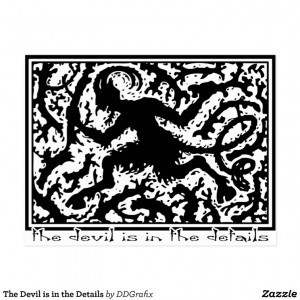 All the above indicative in such works as...’Hero with a thousand faces’ by J. Campbell.
All the above indicative in such works as...’Hero with a thousand faces’ by J. Campbell.
‘Higher’, [ conscious ‘self’ ]. = Positive / light = ‘Best’ part of. Link to...'Yahwah', [ symbolic/represented in [A] By the word ’King’ or Lord].
‘Lower’, [ unconscious ‘self’ ]. = Negative / dark / shadow = ‘Worst’ part of. Link to ‘devil/demon’ aspect of self, [ symbolic/represented by the word ’Prince’ or slave/ego, i.e., prince in relation to Lord. 'Slave' in relation to 'master' [ego].
Common parlance, 'To ''lord'' over all'.............i.e.,in the positive sense. As an example, [1] - [7]. Follow it, to understand it. The ''parts within the whole." Found elsewhere.
Viserys Targaryen? {Game of Thrones}.
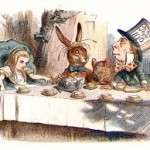
Mad march hare.
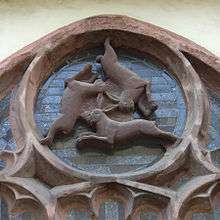
Man in the moon?
"In primitive communities the moon is frequently called The Lord of Women. For the moon is regarded, not only as the source of woman's ability to bear children, but also as the protractor and guardian of women in all their special activities." [Chapter 2, 'Women's Mysteries: Ancient and Modern'. Mentioned elsewhere]. Think about it in relation to the word 'anima'. Purpose of, relative to an understanding; if only from the 'male' perspective.
'The King of the World' by Rene Guenon.
"Artemis was sometimes worshiped in Greece as a she-bear.'' ['Man and his Symbols'].
N.B. ''Male and female Polar bears are known as Boars and Sows.'' ['The Chase'].
'White Goddess' ?
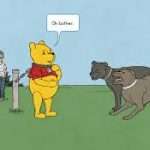
Bear baiting? lower prodding higher?
"A relationship between the Great Bear and the Pleiades is found in many stories. For example, the Pleiades are still referred to as the seven sisters, but there are now only six Pleiads. The Greek legend tells that one of the Pleiads, Elektra, was kidnapped by one of the seven kings {one of the stars in the Big Dipper - Alcor} and now accompanies him as a binary star companion {Sirius?}. This myth is associated with the fall of Troy, which, symbolizes the ''fall'' of the Big Dipper out of proximity to the North Celestial Pole, signalling a new world age around 2200 BC." Try ''lost sister''.
Sisters {female} - Kings {male} as a means...?
A working example: "Whatever the images and terms of the sacred accounts - be they the Vedas, the Nordic sagas, the texts of ancient Egypt, the Old Testament, or the revelations of the Gospels - there exists an undeniable parallelism between these two expressions of a knowledge concerning the origin, the becoming, and the aim of life. The question is: What object could be the aim of the Hermetic opus? It will necessary be an undetermined substance and not a mineral, plant, or animal being. This substance can be none other than the vital ''fire,'' Life, capable of being transmitted to a specific being in order to lead that being to its own 'perfection'. This indeed is what all good texts intimate. Because of its parallelism with the ultimate becoming of the human, this available ''life-essence'' is called King, cosmic man; but it must be recognised that attaining this aim is not an end; it is the beginning {Pharaoh?} of the light that illuminates reality." ['Sacred Science'].
'King' in relation to 'Pharaoh' . Recall Hatshepsut's 'position' in the valley of the 'Kings'. {Enlarged elsewhere}. ALL as a means...?
S/W {'male' and/or 'spirit'} IN RELATION TO S/E? {'female' and/or 'anima'}.
Side note: A female burial with a full cow found S/E England {the only one to date in North Western Europe}. Many others found which shows the prominence of a female 'hierarchy' {without the cows}. Try ''Mona'' to get closer to a mind set beyond: "A sacrificial offering. A meat gift - to allow her to host parties in the next world''. ['Digging for Britain' / Series 3. Episode 1].
Think about all the above in relation to that universal ''bit''.
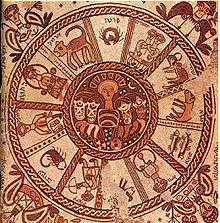
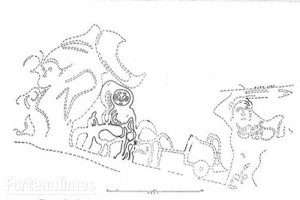 "There is a very interesting book by Dr M. Harding called 'Woman's Mysteries Ancient and Modern'. In it is an immense amount of information which should set the readers subconscious mind questing to and fro on a scent which grows warmer and warmer until Chapter 15 is reached. What Chapter 15 means to you will depend entirely upon what you are. It is true this work deals almost entirely with the Moon Mysteries, but, a mans immediate inner self - his anima - is feminine...whereas in this state of cosmic matrimony...for a woman that would be her animus; not anima; if Jung is correct." [Chapter 5, 'The Forgotten Mage'. Mentioned elsewhere]. Understanding what is implied by this author defines what 'fifteen' represents within this subject.
"There is a very interesting book by Dr M. Harding called 'Woman's Mysteries Ancient and Modern'. In it is an immense amount of information which should set the readers subconscious mind questing to and fro on a scent which grows warmer and warmer until Chapter 15 is reached. What Chapter 15 means to you will depend entirely upon what you are. It is true this work deals almost entirely with the Moon Mysteries, but, a mans immediate inner self - his anima - is feminine...whereas in this state of cosmic matrimony...for a woman that would be her animus; not anima; if Jung is correct." [Chapter 5, 'The Forgotten Mage'. Mentioned elsewhere]. Understanding what is implied by this author defines what 'fifteen' represents within this subject.
Question. S/E ?
"The names [in relation to the 99 names within the Quran] represent the infinite aspects or modes of the relationship in its infinite variety of qualities"..........."The same is true of the term ''Lord'', which denotes not the universal position of the 'Creator God', but rather the particular position of a particular aspect of god in relation to an individual 'creation'. So that while the word 'God' is the god of creation as a whole, the word 'Lord' denotes a private and special relationship between a particular 'being' and its corresponding archetype in divinis." [Introduction, 'The Bezels of Wisdom'. Mentioned elsewhere]. Question. 'Noble'?
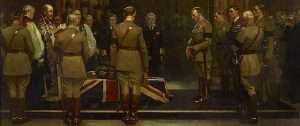
"The Unknown Warrior''.
[1]. Sufi/Quran equivalent = 'nafs', in relation to 'spirit', [ruh] and reason, [aql] i.e.,"the struggle against the lower self". What the Sufis call "the Greater Holy War. 'Jihads' true meaning, i.e.,that 'inner' one. Think about it, especially in relation to the word 'Holy'. Chapter three 'Mystical Dimensions of Islam. Mentioned elsewhere.
'Mans Search for Meaning' / Viktor Frankl.
''The whole gamut of human experience {and/or emotions}''. Question. What animal represents that final word? ...Why?
Egyptian equivalent..."Djehuti is the symbol of right reason, the link to the higher self. When the determination to pursue the Divine arises, the struggle becomes a holy war against ignorance and illusion within ones consciousness." [Extract from the book by S. Ashby].
[2]. 
 "Then one day, when they had just returned from a great battle, the Prophet said to his followers, 'We have returned from a small battle, to wage the Great war,' indicating the struggle with ones own ego, ones lower self, which is the meaning of the Confession of Unity. 'Your greatest enemy', he said, 'is under your ribs''. [Chapter 5, 'Secret of Secrets'].
"Then one day, when they had just returned from a great battle, the Prophet said to his followers, 'We have returned from a small battle, to wage the Great war,' indicating the struggle with ones own ego, ones lower self, which is the meaning of the Confession of Unity. 'Your greatest enemy', he said, 'is under your ribs''. [Chapter 5, 'Secret of Secrets'].
'Lesser' in relation to self defence {only}. 'Greater' in relation to those 99 names. Two of which {Mercy and Compassion} Muhammad is renowned for. Question. From what 'battle' did they return from - from what battle is Muhammad referring to? Think about it. How simple and yet profound.
Struggle in relation to 'wrestle' and/or 'submit'. Enlarged elsewhere.
Refresher: ''The symbol of the lower will is the altar''.
"Fusion, inner unity, is obtained by means of 'friction', by the struggle between 'yes' and 'no' in man. If a man lives without inner struggle; if everything happens to him without opposition; if he goes wherever he is drawn or wherever the wind blows, he will remain such as he is. But if a struggle begins in him, and particularly if there is a definite line in this struggle, then, gradually, permanent traits begin to form themselves, he begins to 'crystallise'. Crystallisation is possible on any foundations..."

"The Unknown Warrior".
Side note: ''Over one hundred years ago, the body of the Unknown Warrior was brought from the battlefields of France to be re-buried in Westminster Abbey, among the great and the good of British life. This unidentified serviceman was commemorated with all the pomp and circumstance of a State funeral, attended by King George V, other members of the British Royal Family and other important dignitaries, both civil and military. But why was this, what is the story behind the burial of the unknown warrior and what was the public reaction at the time? Who first thought of the idea of re-burial and was/is the identity of the unknown warrior actually known to a privileged few?
Since 1920, many different accounts of the circumstances behind this national event - an idea copied by many other countries since - have been written and there has been much speculation and some contradictions. What is certain is that the re-burial of an unknown serviceman captured the imagination of the British public like few events before or since, and was partly a victory for 'people power'....."
Mind set?
'Sarcophagus' to enlarge.
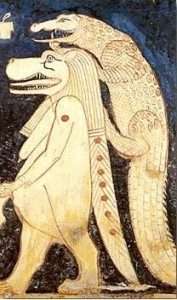
Dominion and/or slavery? Blue and/or white? Which and why?
And/or: Saturn, as you know, is the binding, crystallizing vibration. The pair of opposites assigned to it is Dominion and Slavery, because our expression of this 'vibration' {i.e., in the ''energy'' sense of the word, i.e., recall J. Campbell's quote}, either frees or limits us, according to the point of view that we take. " [Page 51 of the book by P. F. Case. Vol 1].
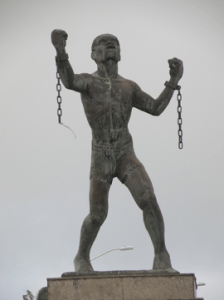 ''We came in chains, we came in misery, now all our suffering and pain is part of history. We came in chains - you must remember that, for that, and THAT alone explains where we are NOW exactly at. We came in chains, we came as living loot - so you could boast slave gotten gains - we've groaned beneath your boot. We came in chains and how our blood was spilled, together with our sweat, it stains this nation that we helped build. We came in chains, we didn't volunteer - and yet still the fact remains we're still held captive here. We came in chains - now i say cut us loose - though that may go against your grain, still there's no excuse. We came in chains, now who down there is going to bear the cost, till everyone regains the freedom we have lost. We came in chains, now your choice must be to either blow out all my brains or set me free.'' {'Whats My Name: Muhammad Ali'}.
''We came in chains, we came in misery, now all our suffering and pain is part of history. We came in chains - you must remember that, for that, and THAT alone explains where we are NOW exactly at. We came in chains, we came as living loot - so you could boast slave gotten gains - we've groaned beneath your boot. We came in chains and how our blood was spilled, together with our sweat, it stains this nation that we helped build. We came in chains, we didn't volunteer - and yet still the fact remains we're still held captive here. We came in chains - now i say cut us loose - though that may go against your grain, still there's no excuse. We came in chains, now who down there is going to bear the cost, till everyone regains the freedom we have lost. We came in chains, now your choice must be to either blow out all my brains or set me free.'' {'Whats My Name: Muhammad Ali'}.
Side step: "The chemistry of the situation is as follows: When copper{II} sulfate, the chemical that makes up ''root killer'' {i.e.,a pure crystalline hydrated form of above}, crystallizes, it attracts and holds water. There are other compounds that do this, such as the silica in the little, plastic containers of say pill bottles. Their purpose - to absorb moisture away from the pills. This attraction for water means that the formula for copper {II} sulfate, has five molecules of water held to it, but loosely. These waters of hydration, as they are called, can be removed by heating, just as water is removed from cloths in the dryer. Copper {II} sulfate with the water is blue ; without the water is white. Not that mysterious unless you are a Renaissance alchemist and can 'see' enough wonder in the change from blue to white to throw it in your recipe for the philosophers stone." ['The Chemistry of Alchemy'].
''Pure/natural'' form {white?} to represent something - as a means...?
"...and he said there would be more; he said other substances would be distilled down to their ultimate, purest form...'' [Same book].
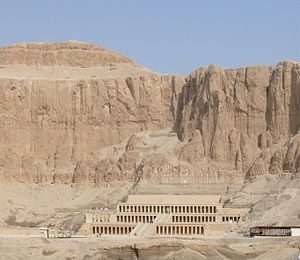
Head of the corner?
And/or: "In 'A Discourse of Fire and Salt: Discovering Many Secret Mysteries' the adept tells us: 'So that a man is but as a spiritual tree planted in the paradise of delights, which is the earth of the living...This man tree, as he admits, is planted in the earth 'by the roots of his hairs'. Here the author reaches into the very essence of alchemy - that the head is the seed, which must be planted in the darkness of death, to flower again {''root killer'' link?}..." ['The Zelator'].
Question. The head of Bran the Blessed? { i.e., a Welsh {therefore 'west'?} 'giant' king of these Isles, i.e., Primordial mound link to N/W?}.
Try ''head'' / ''flower'' / ''seed'' ALL in relation to the ''crystallization'' of something as a means...?
N.B. Quartz needs heat and water to form.
A working example: "For a long time after the experience of Montereggione, 'we' were rootless..." ['The Zelator'].
Side note: "There is a mosque whose foundation was laid from the first day on piety; it is more worthy of thy standing forth therein." [i.e., in relation to ''The original mosque of piety built by the Muhammad himself]..."Which then is best? - he that layeth his foundation on piety to God and his good pleasure? - or he that layeth his foundation on an undermined sand cliff ready to crumble to pieces?" [Quran 9:108/109].

Djedefre ?
Continued..."But crystallization is possible on a right foundation and it is possible on a wrong foundation. 'Friction', the struggle between 'yes' and 'no', can easily take place on a wrong foundation. For instance, a fanatical belief in some or other idea, or the 'fear of sin', can evoke a terrible intense struggle between 'yes' and 'no', and a man may crystallize on these foundations. But this would be a wrong and incomplete crystallization. Such a man would not possess the possibility of further development. In order to make further development possible he must be 'melted' down again {''undoing'' link? Enlarged elsewhere} - and this can be accomplished only through 'suffering'..." ['In Search of the Miraculous'].
And/or: Saturn, as you know, is the binding, crystallizing vibration. The pair of opposites assigned to it is Dominion and Slavery, because our expression of this 'vibration' {i.e., in the ''energy'' sense of the word, i.e., recall J. Campbell's quote}, either frees or limits us, according to the point of view that we take. " [Page 51 of the book by P. F. Case. Vol 1].
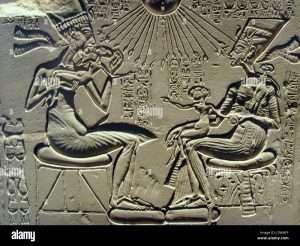
What are EACH sat on?
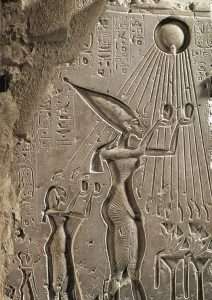
Triangular headgear or tumulus?
Refresher: "An ancient adept has said: 'If the wrong man uses the right means, the right means work in the wrong way.' This Chinese saying, unfortunately all to true, stands in sharp contrast to our belief in the 'right' method irrespective of the man who applies it...For the method is merely the path, the direction taken by a man. The way he acts is the true expression of his nature. If it ceases to be this, then the method is nothing more than an affectation, something artificially added, rootless and sapless, serving only self deception..." ['The Secret of the Golden Flower']. Karma?
Bad habits in relation to good ones? Hence...
"Knowledge of oneself is a very big but a very vague and distant, aim. Man in his present state is very far from self knowledge. Therefore, strictly speaking, his aim even cannot be defined as self knowledge. Self-study must be his big aim - to know himself in the right way." Same book.
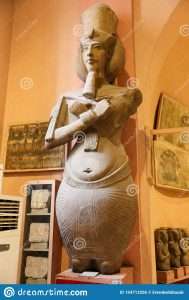
"A pregnant pause is a pause that gives the impression that it will be followed by something significant1. It is a technique of comic timing used to accentuate a comedy element, where the comic pauses at the end of a phrase to build up suspense2. It is often used at the end of a comically awkward statement or in the silence after a seemingly non-comic phrase to build up a comeback2. A pregnant pause can also be a pause or silence that is laden with meaning or significance."
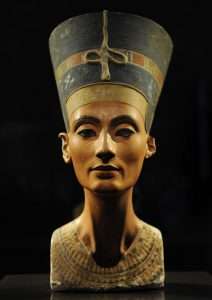
'Stamp of the feminine'. Real or symbolic? Heart of the matter?
"As the Prophet says, 'There is a piece of meat in mans body - when it is in a good state, the whole being improves, and when it is in a bad state, the whole being falls apart. Be aware, that piece of meat is the heart." [Extract taken from chapter 14, 'The Secret of Secrets'].
'Intelligence of the heart'. Therefore ''Maat'' link?
Heart in relation to those higher principles; two of which Muhammad was renowned for - Mercy and Compassion. Benefit and purpose of in relation to ones 'journey'. The whole one. Try ''holy'' and/or ''grace''. Meaning of - relative to each individual.
Question. Why did the Quran come about in the first place? Was it not to give those warring fractions {i.e.,tribal families and fraternities} something else to think about other than revenge and personnel vendetta's? By-way-of- what is termed as ''idol'' worshiping.
Question 2. Those two words {i.e.,''revenge'' and ''vendetta''} - to what group do they belong - higher or lower? In other words are those two words {principles?} within those esteemed {holy?} 99 names? If not, then, to 'whom' do they belong? Enlarged elsewhere.
PROOF. That extreme organization, that professes to be a part of Islam - Do there actions achieve any 'divine' intervention? Are they allotted any amount of 'grace'? {i.e.,as say Muhammad and/or the Jesus chap did. To name but two}.
So simple and yet profound? i.e.,understanding the above gives clues as to how that problem can finally be resolved, i.e.,from within, i.e.,a true understanding of all religious texts, including the Quran.

A working example? Deny, defend, depose?
"The penalty of retaliation is a savage way to pay a dept, for the thirst for vengeance is an impulse of the human animal, {lower?} and its quenching has two bad effects: first, it engenders hatred and becomes the cause of new acts of violence, because hatred attracts hatred {karma?}, and violence engenders violence. Moreover, it submits the revenger to the inevitability of passionate reactions, which prevent him from going beyond his human animal." ['Journey into the Light'].
Game of Thrones? {i.e., what goes around comes around}.
Analogy: "The path of Osiris is not imposed by anyone, it is the reality of Nature that dictates. From the moment a man is born on earth, he enters a cycle he cannot escape until the causes of disharmony, which he himself created, have been exhausted." ['Sacred Science'].
